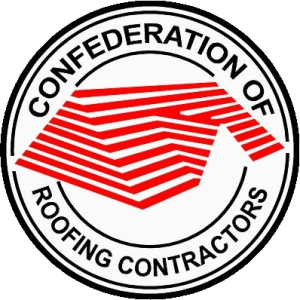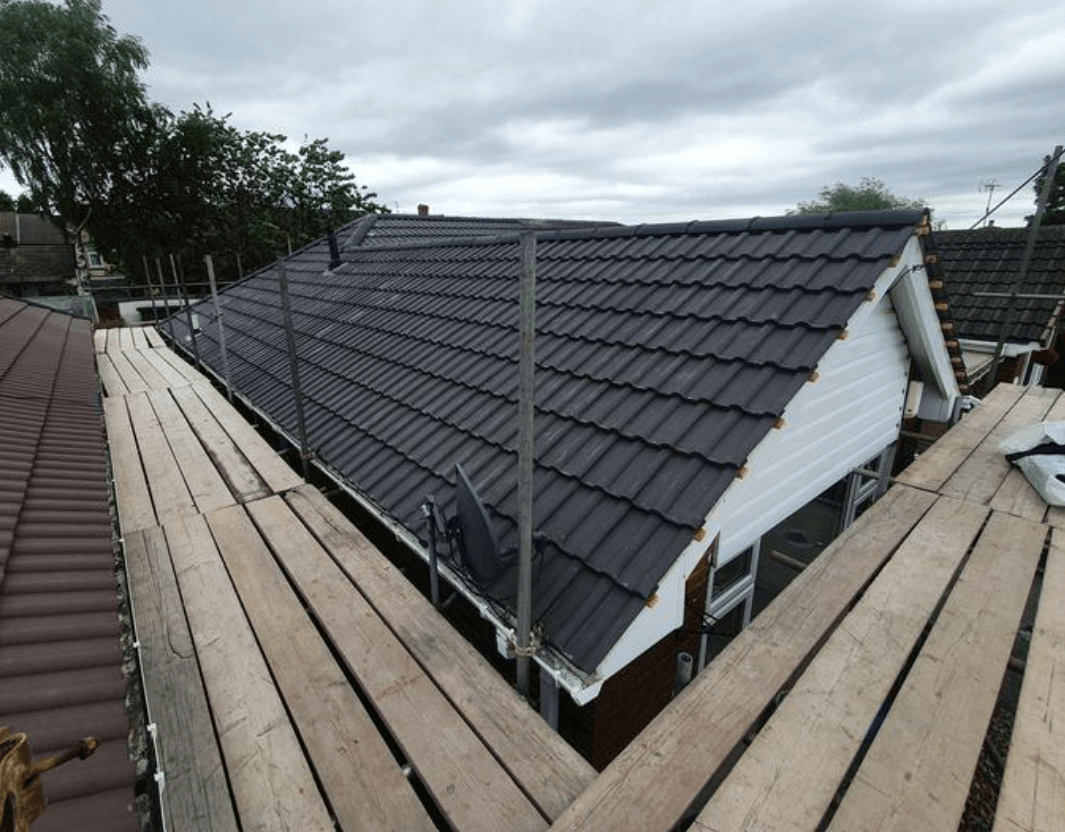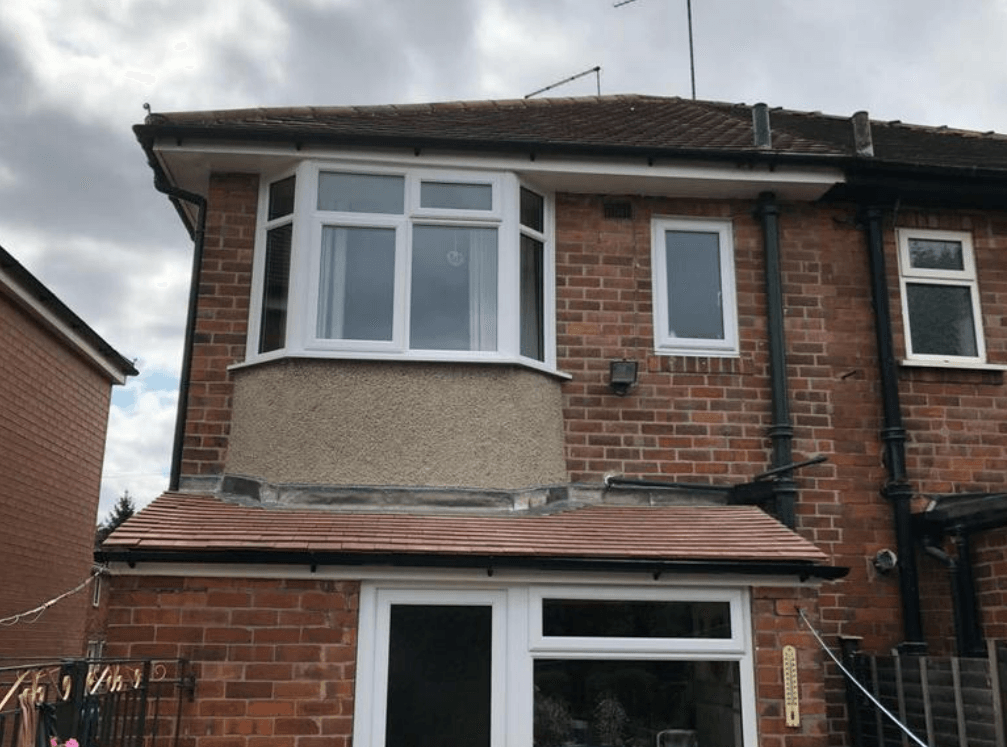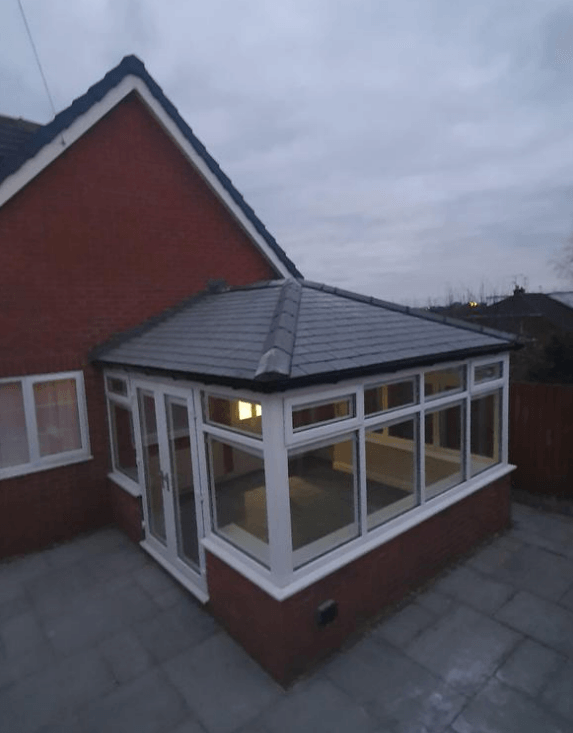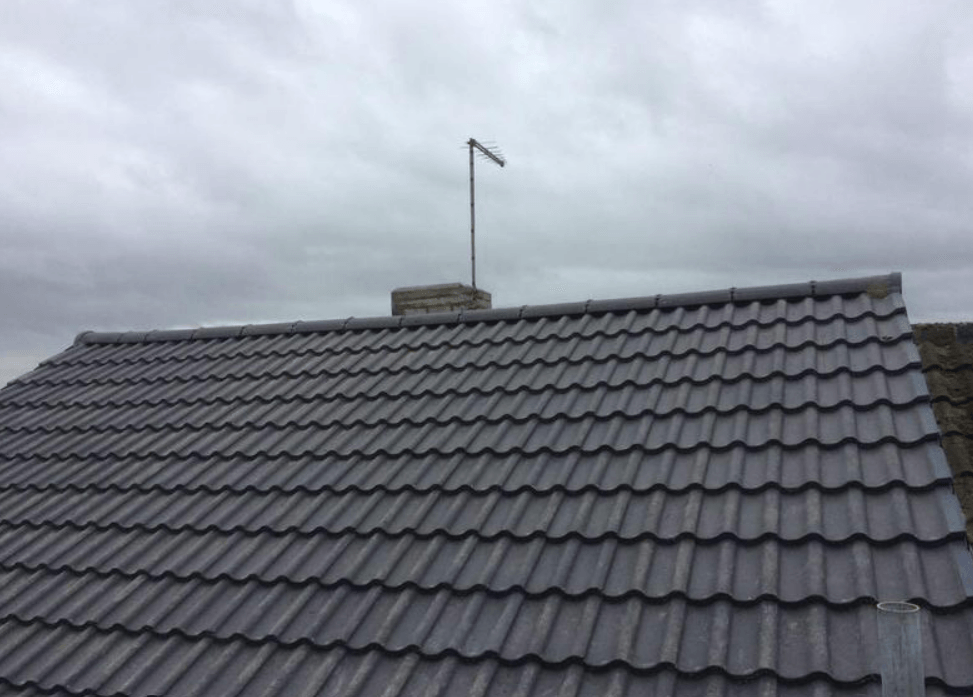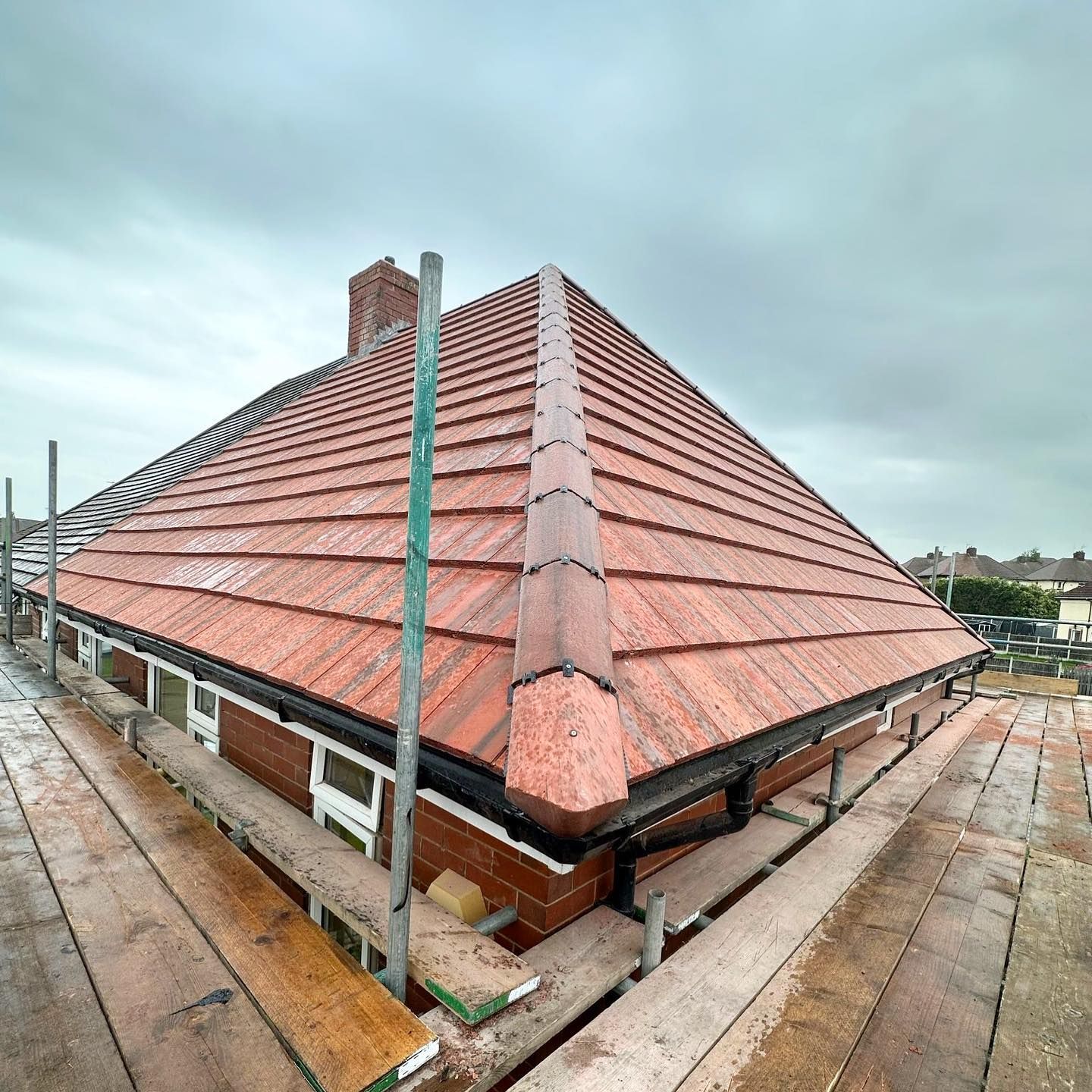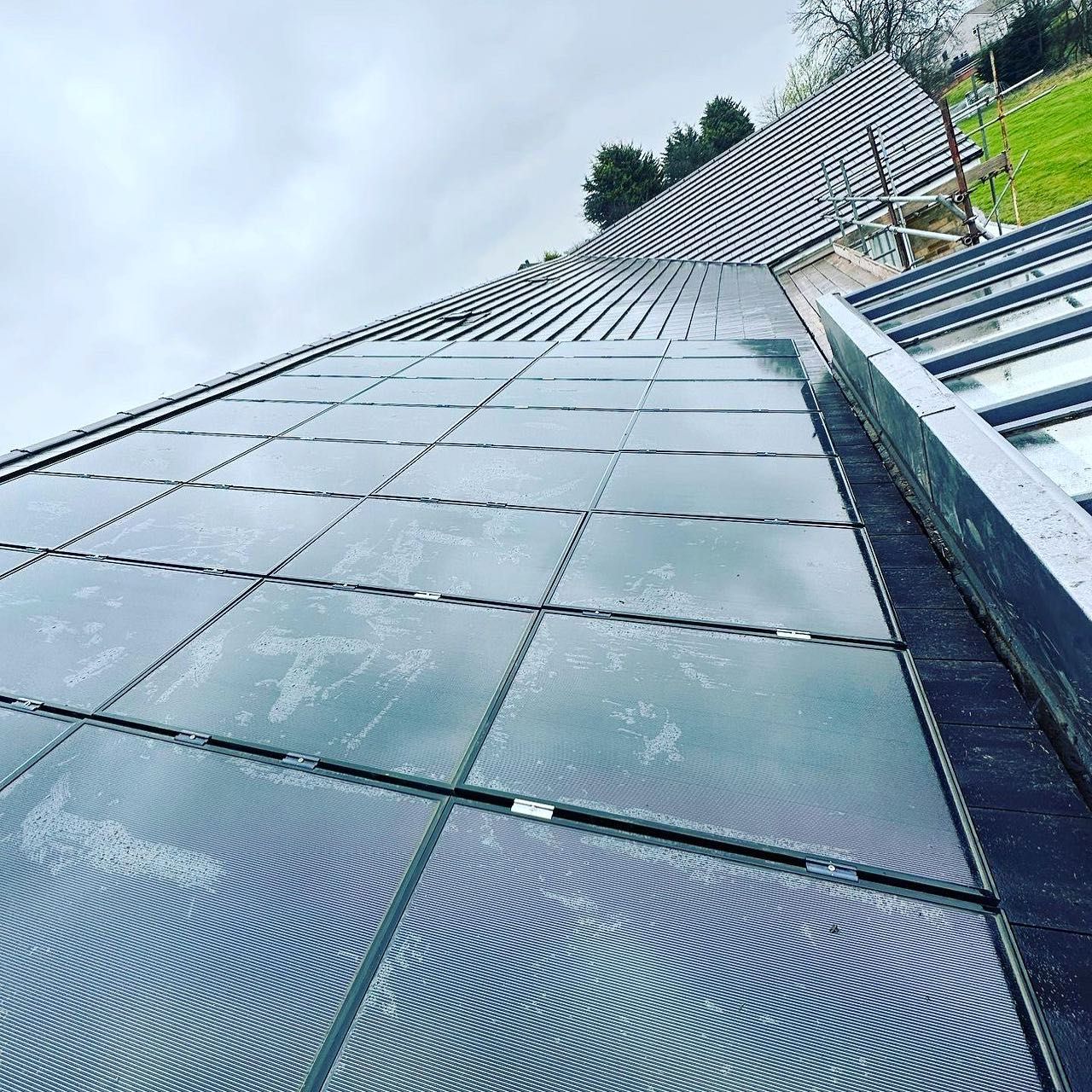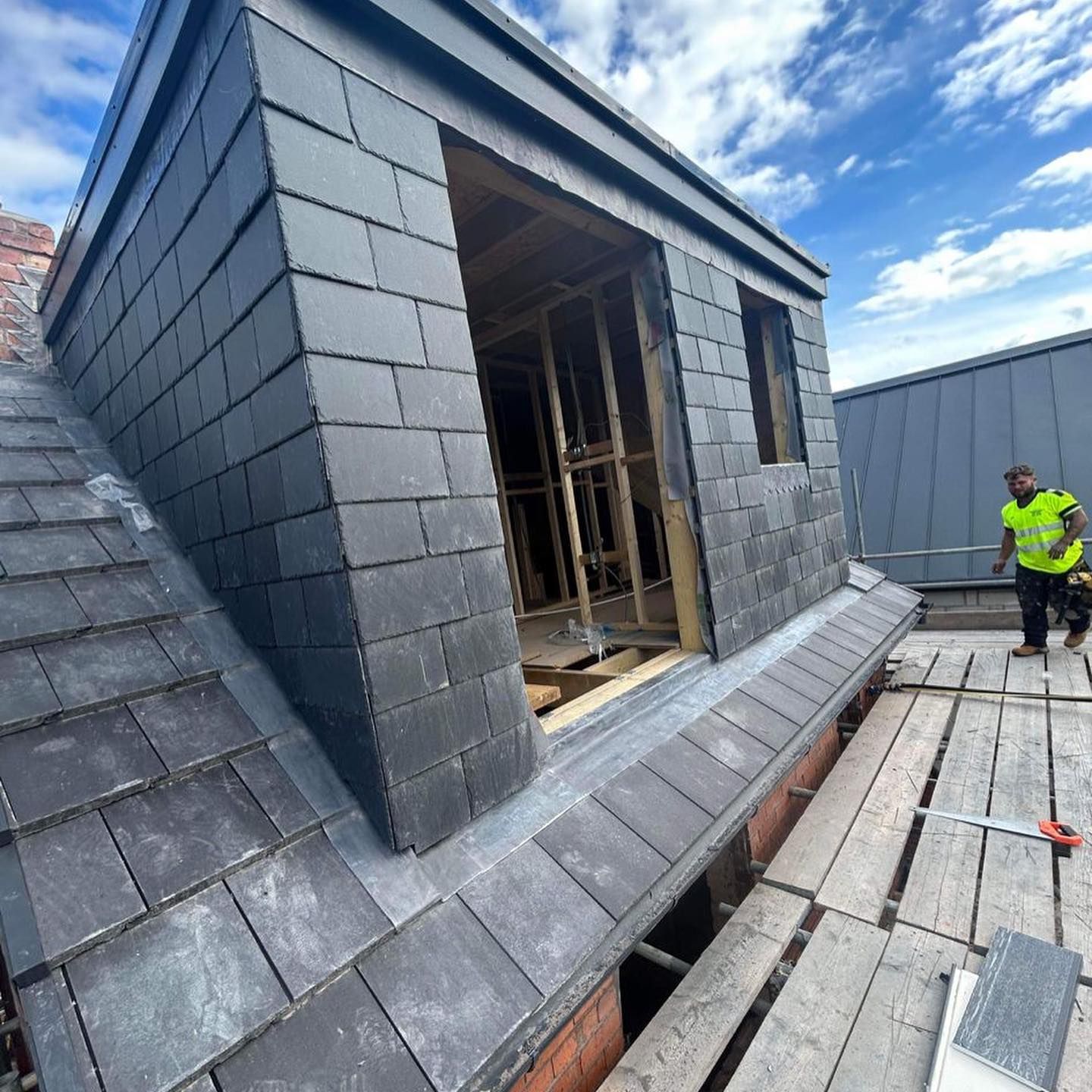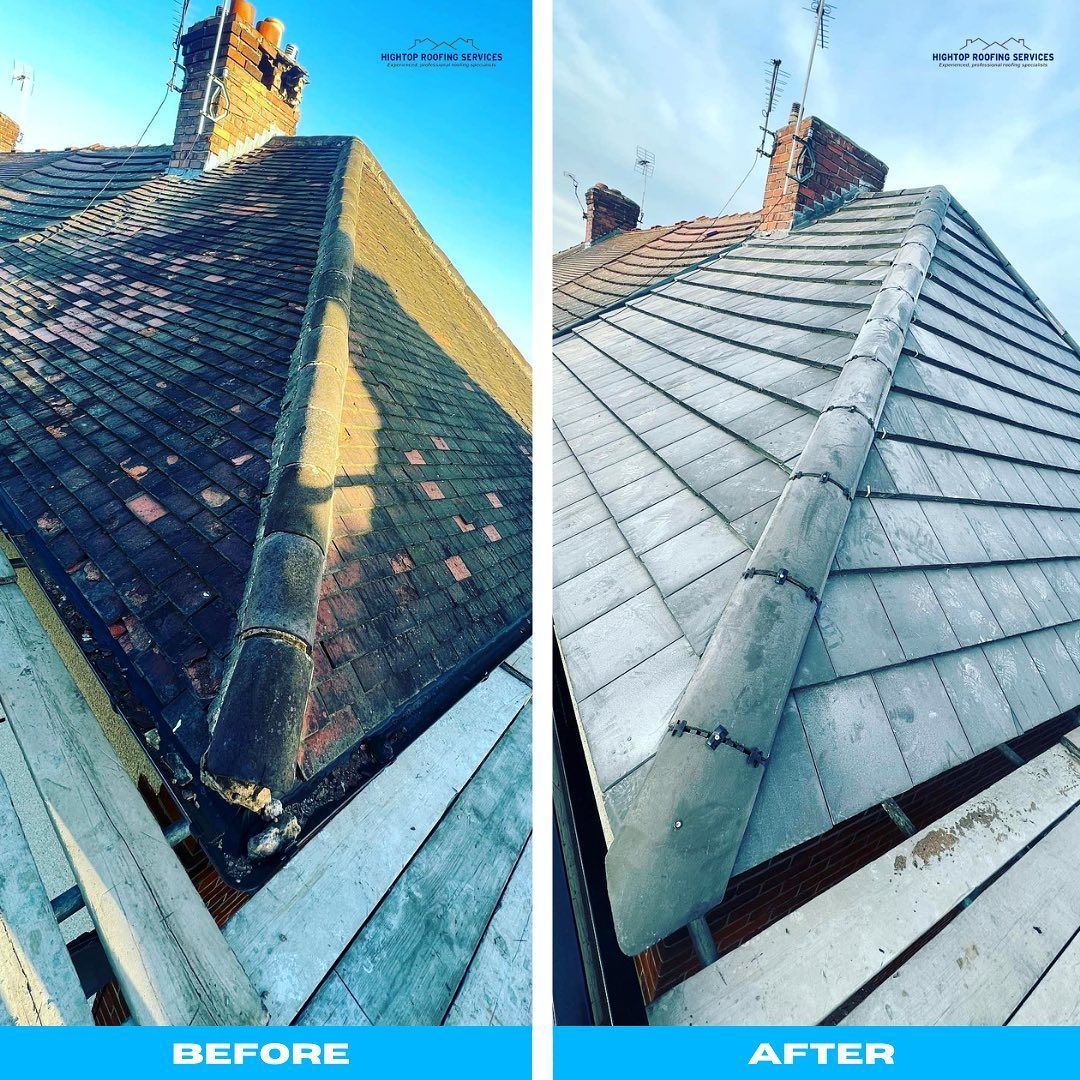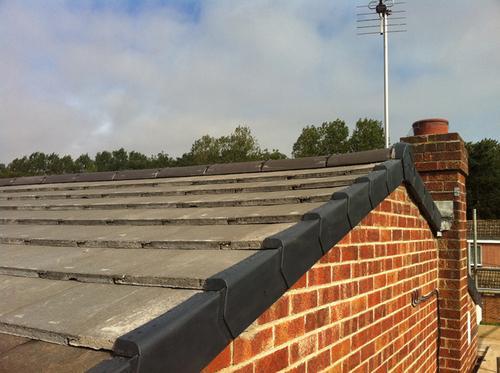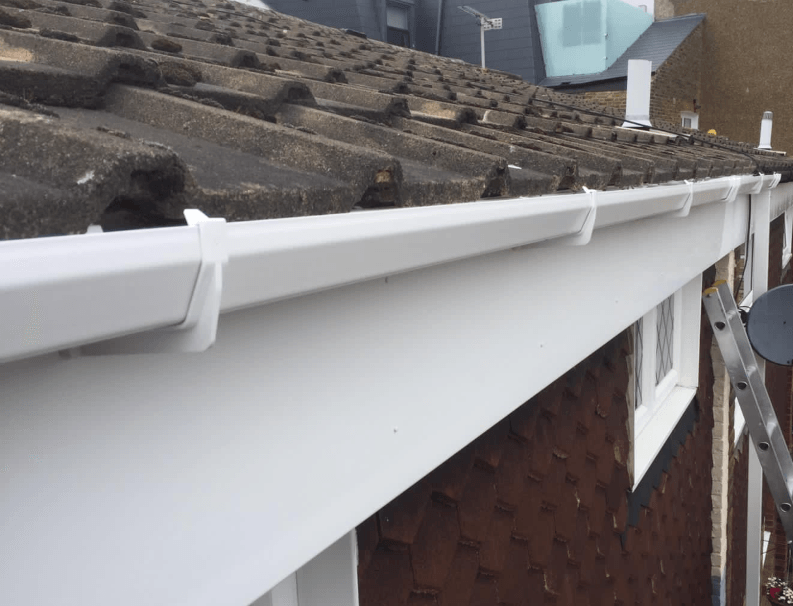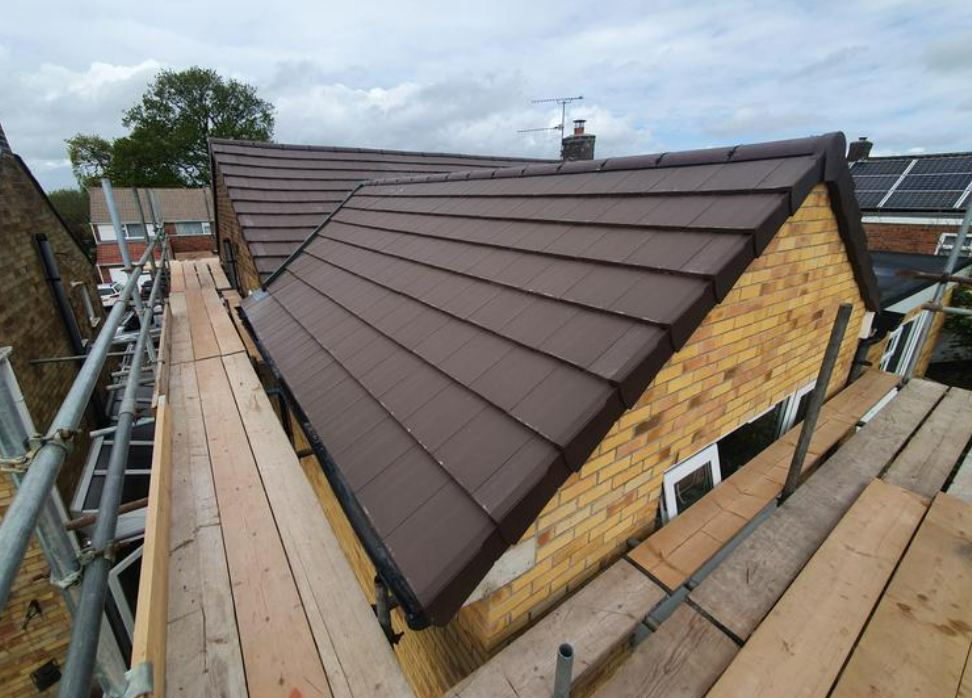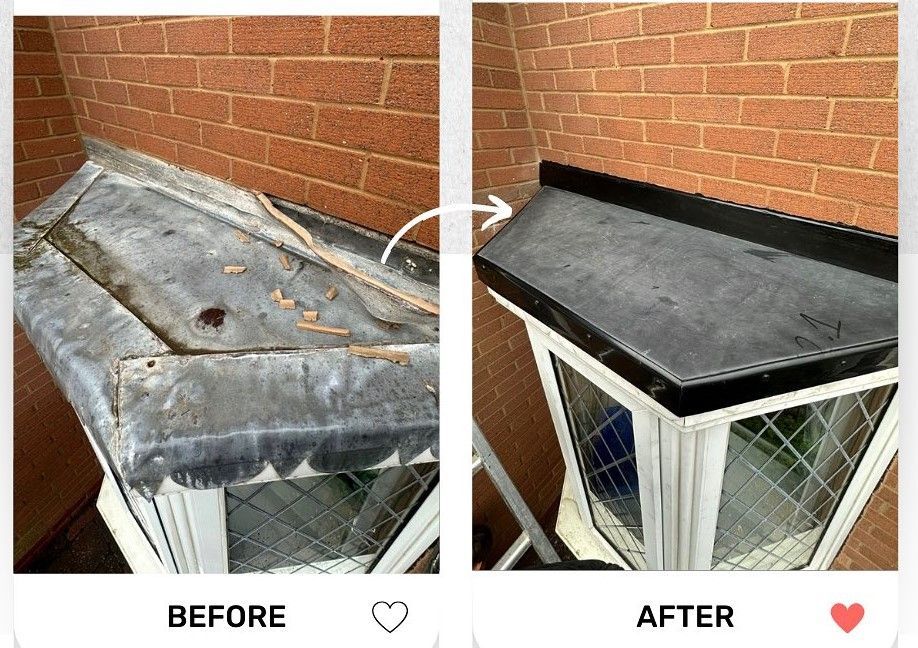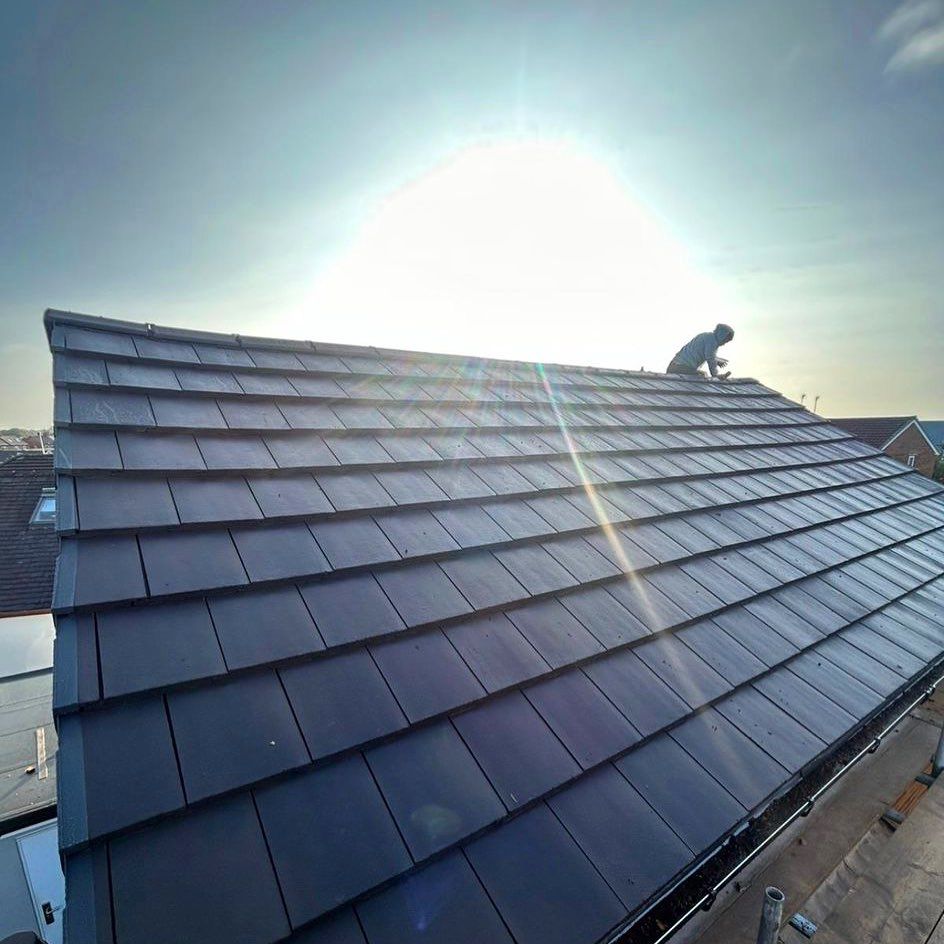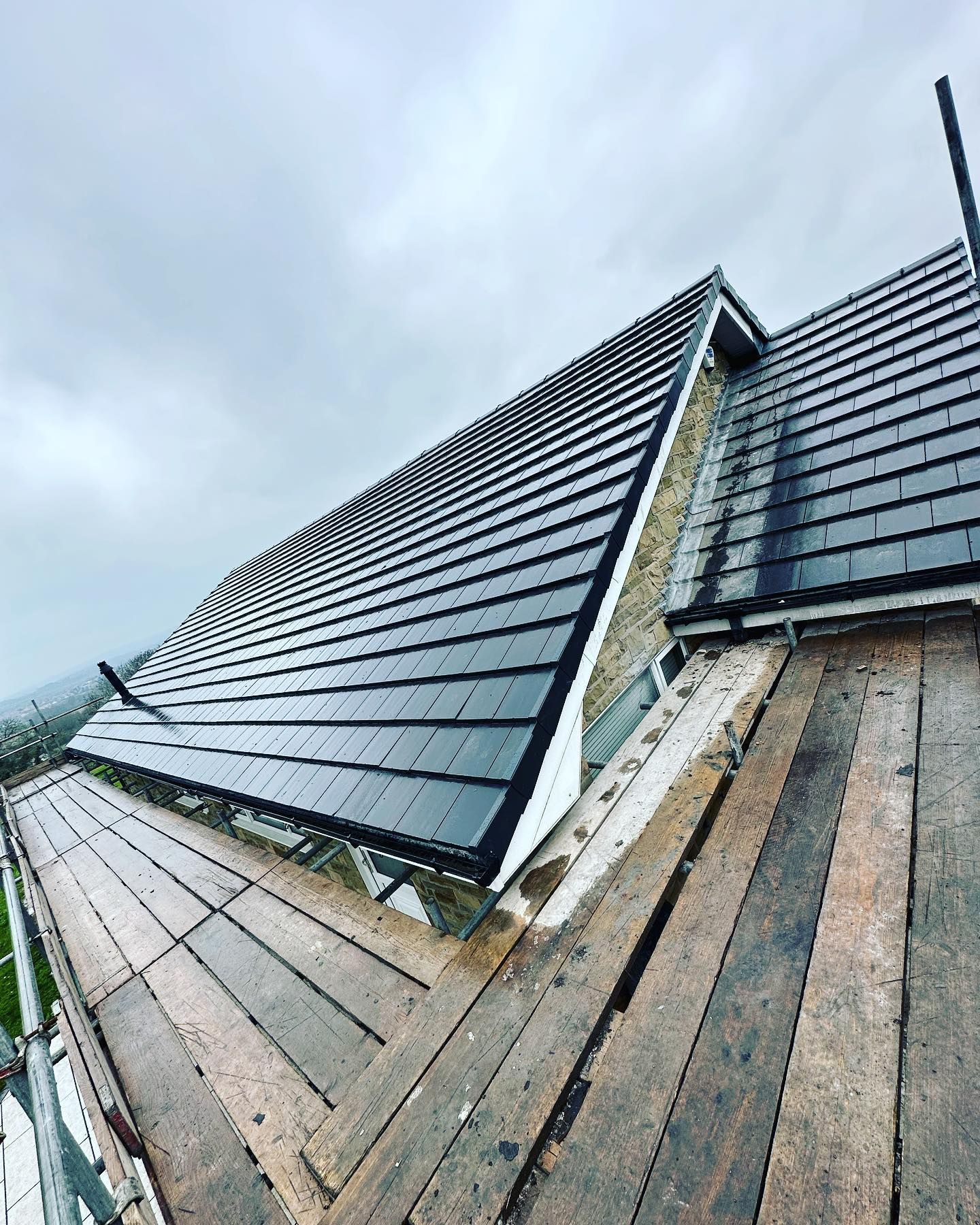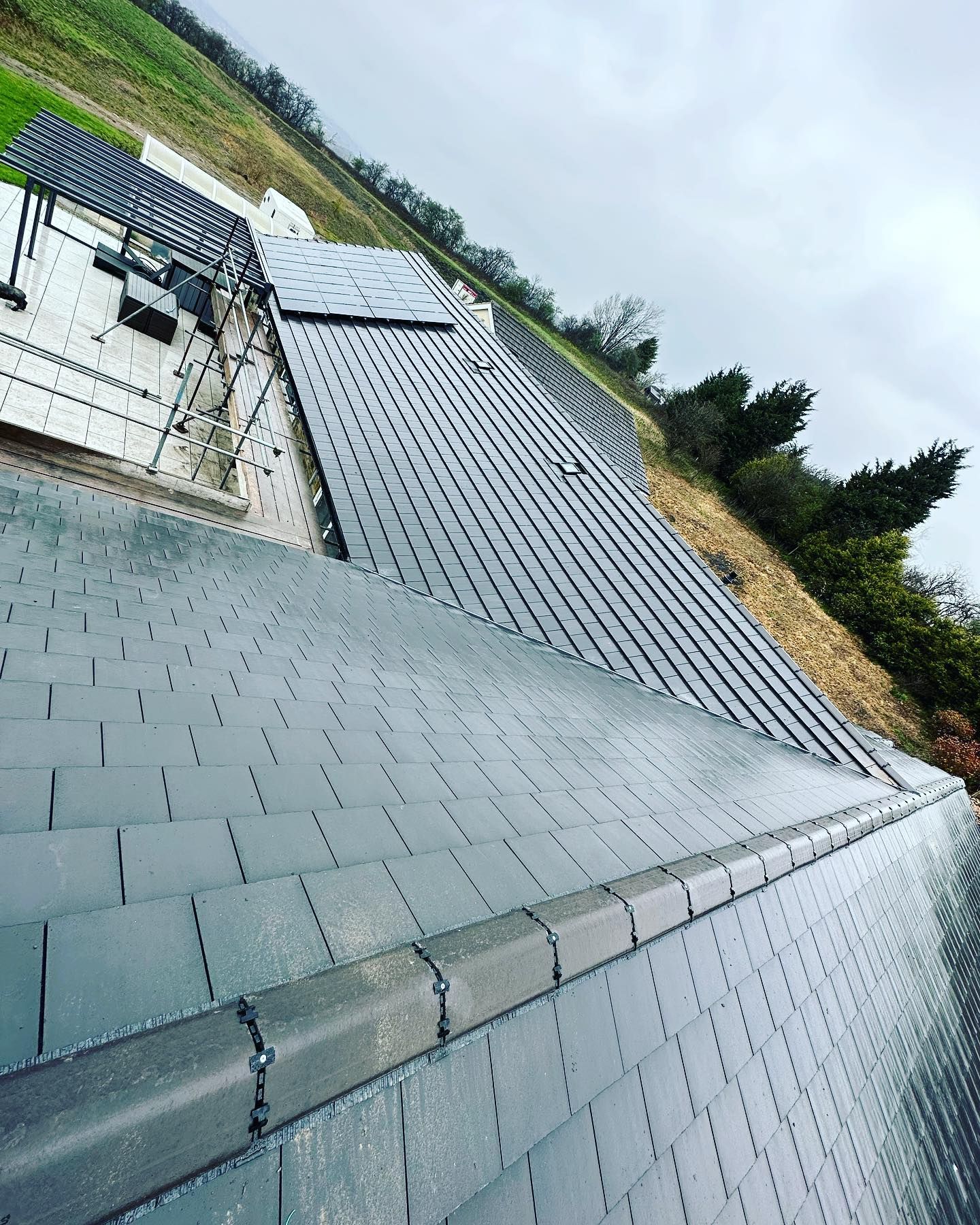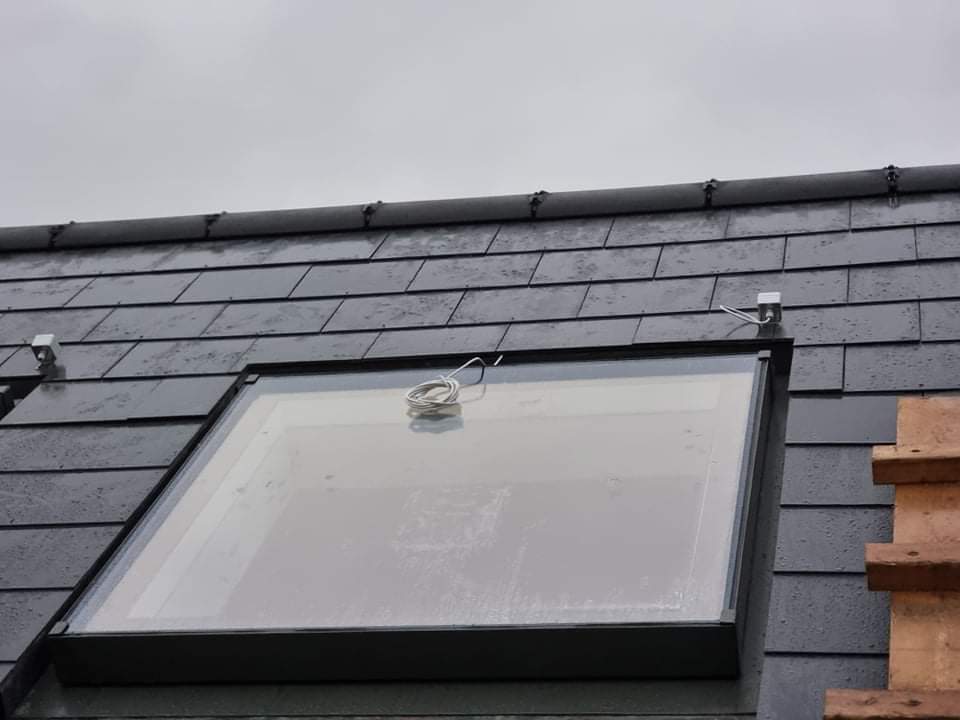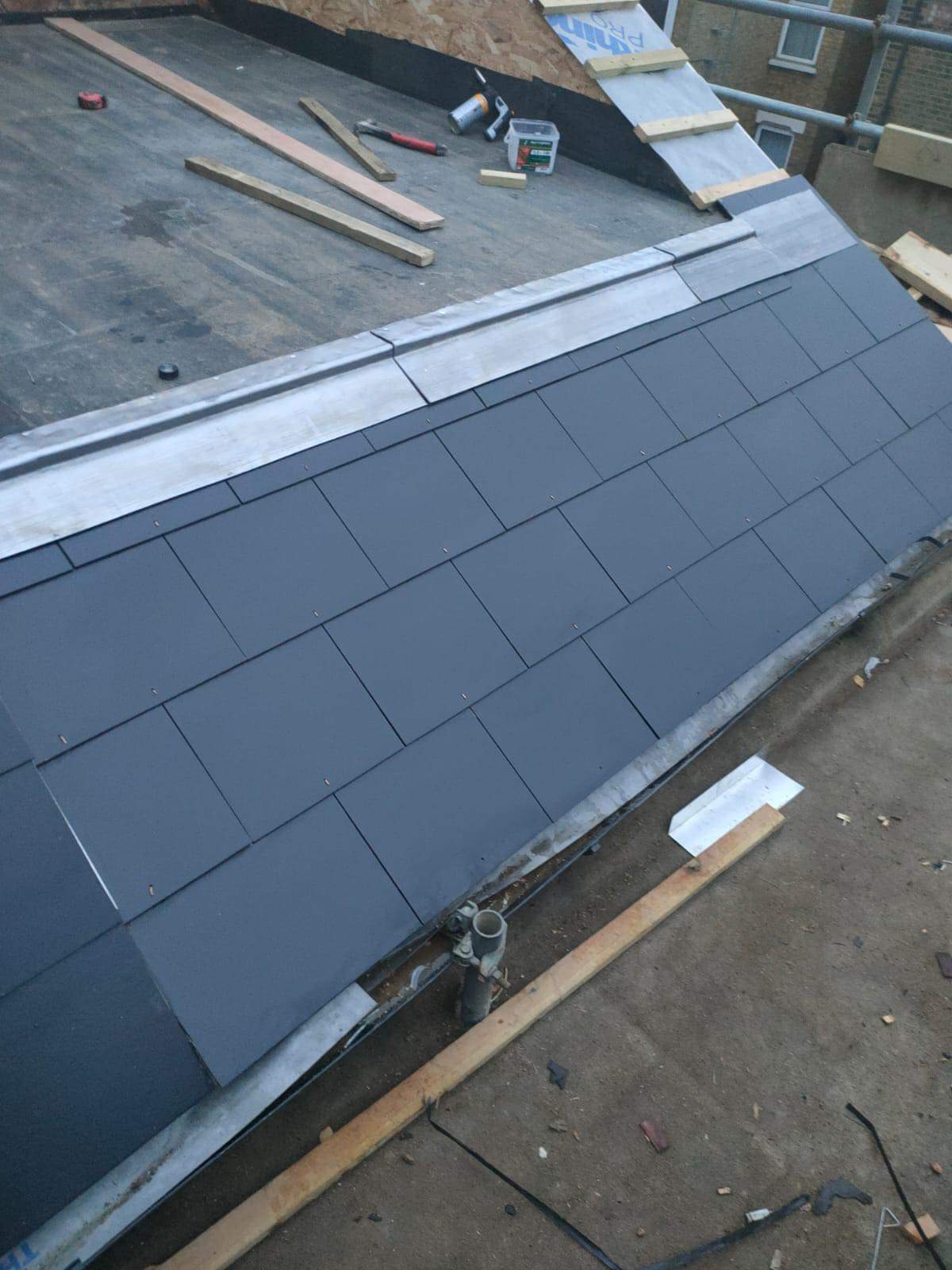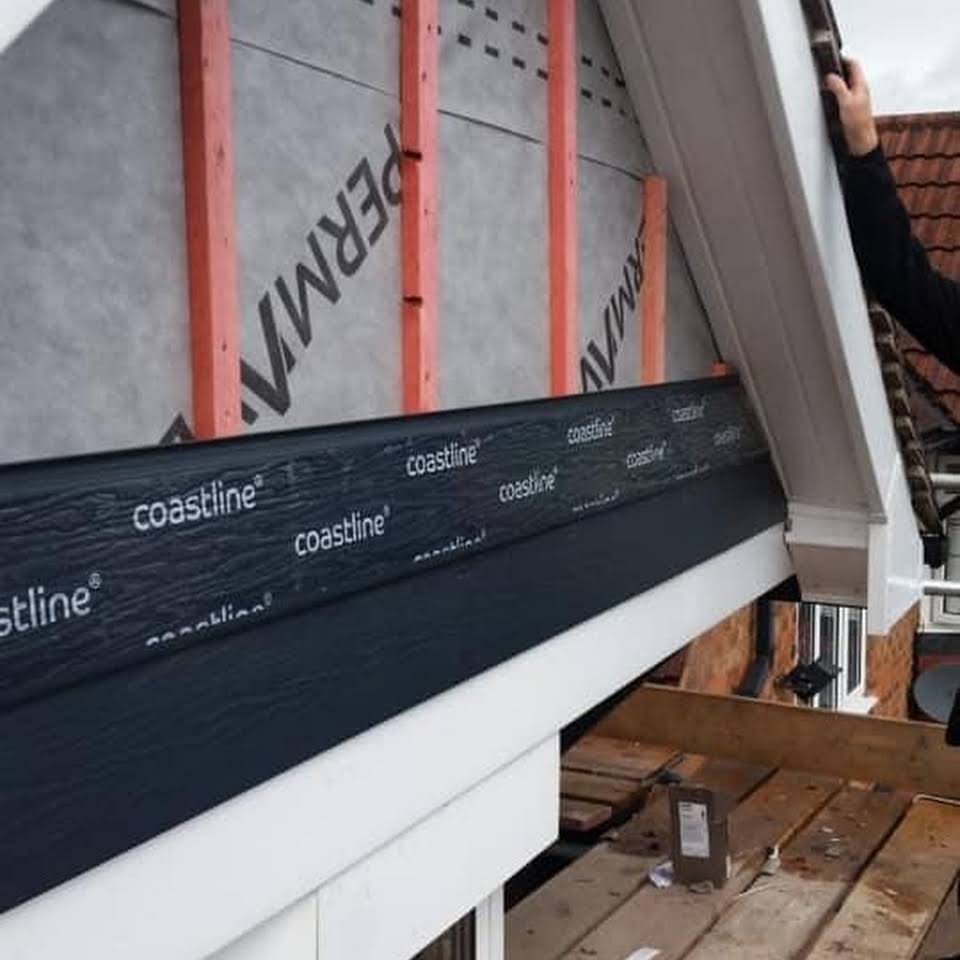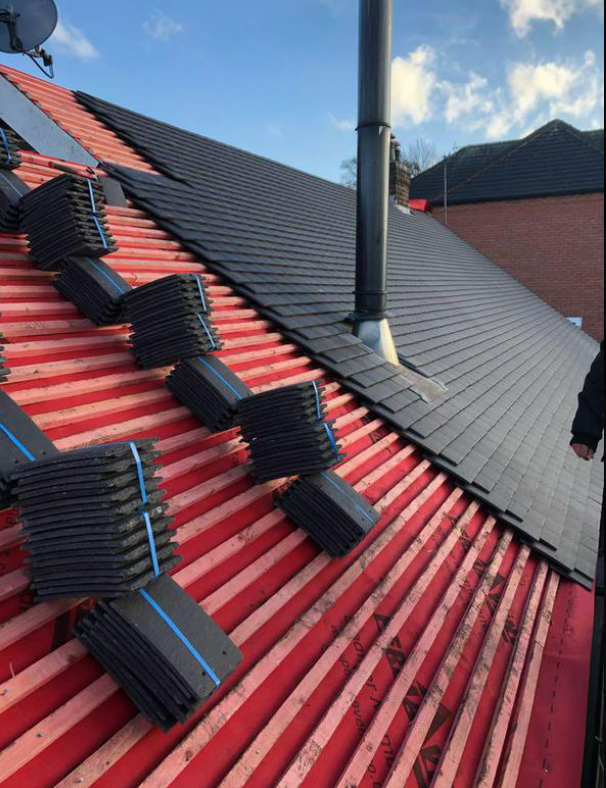Hightop Roofing London
LEADING ROOFERS IN LONDON THAT YOU CAN RELY ON!
Contact Hightop Roofers London today for free expert advice, recommendations and our unbeatable quotes. We are reliable and trusted roofers in London with over a decade of experience in the industry.
Roofers London is 5 star Google rated.
Hightop Roofing London
All of our roofers in London are fully trained and care about each customer.
Best technology
Hightop Roofers London use cutting edge technology and tools to ensure you get outstanding results, quickly.
Qualified roofers
Our roofers in London are experts in their fields, and give you top quality care.
Emergency help
Hightop Roofers London provide an extensive range of emergency roofer repairs to pitched and flat roofs, fascia and soffit panels and gutter systems.
BOOK YOUR FREE QUOTE
Choose us, Hightop Roofers London have helped hundreds of property owners like you!
Check Out Our Hightop Roofers London in Action
Hightop Roofers in London
Hightop Roofing London offer an expert roofing service to London and the surrounding areas. Our experienced roofers know how to provide an outstanding service, whether you require roof repairs, roof renewal, flashing repairs or just an inspection. The team at Hightop Roofing London are more than capable to take care of your next roofing project and we have many years of experience, serving residential and commercial property owners in the capital and throughout the UK. For typical roof repair and replacement costs please see our price table below. For further specialist advice and your free competitive quote, contact Hightop Roofing London today
Our roofers in London pride ourselves on being able to give first class customer service whilst maintaining competitive prices for all our customers. This helps us to stand out from the rest of the roofing companies and our numerous client referrals testify to the level of quality we provide. Hightop Roofers London are proud to be considered amongst the number one roofers in the region.
We are your dedicated ‘roofers near me’ service and we aim to tend to all our customer’s needs as soon as possible. We understand that roof related problems are generally urgent, and we will treat your enquiry with the importance it deserves.
Contact our roofers in London today to experience our excellent customer service for yourselves. For general roofing queries you may wish to check our
frequently asked questions please also check our
news posts
for important roof related advice.
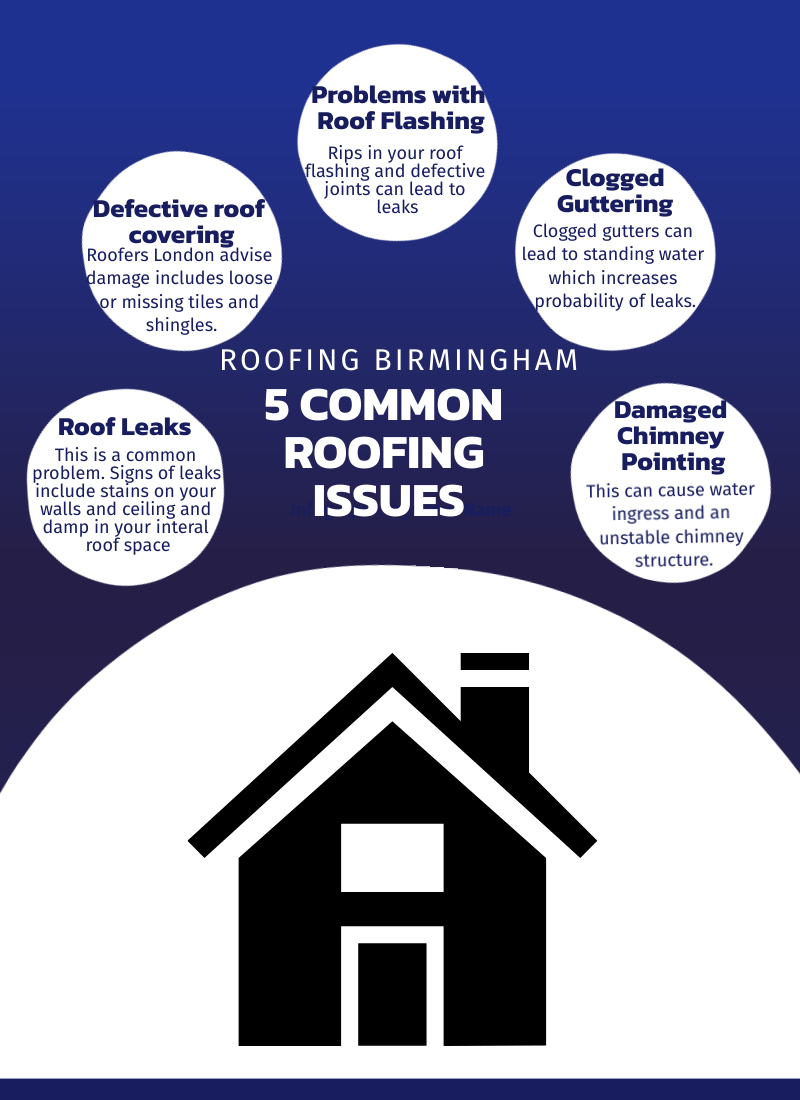
How much does a roof replacement in London cost?
Your roof is an important part of your property, it protects your building from the outside elements and helps to improve energy efficiency. Over a period of time you may find that your roof is in need of a complete replacement. To help improve transparency of costs our Hightop Roofing London team have highlighted the approximate price, in the table below, to replace different types of roofs. and undertake repairs Please note these are only approximate prices and you may pay more or less depending on the company you choose to go with.
The majority of property owners spend between £3500 - £16500 (the higher cost reflects more complex designs and the use of high end roofing materials e.g. slate). Hightop Roofers London advise that factors such as your location, the size of your roof and the materials you utilise can all determine the amount you will pay for your roof replacement. It should be noted that London has higher than average roofing costs compared with other regions in UK. Our roofers in London recommend doing your own research on replacement and repair costs to ensure you are getting a fair price for the work carried out. Here at Hightop Roofers London, we always aim to price our projects competitively. For expert advice and your free quote please contact a member of our friendly team today.
| Type of roof replacement | Approximate low-high cost |
|---|---|
| Hip roof | £6000 - £10000 |
| Gable roof | £5000 - £9000 |
| Flat roof | £1400 - £2100 |
| Ridge tie repair | £30-50 per hour |
| Replacing broken tiles | £100 per half dozen |
Find Roofing London on Google Maps!
Why not head on over to our Google Business page for our latest updates, work and offers. At Hightop Roofers London, we are your go to 'roofers near me' and we take all customer feedback extremely seriously. Why not leave us a review to help our Roofing London team improve service!
Got a question? Leave us a question on our Google profile and one of our friendly roofers in London will be in touch right away!

CALL HIGHTOP ROOFERS LONDON TODAY - 02039847848
Professional Roofers Near Me
If you have ever needed any roofing work to your property, then the likelihood is that you will have asked yourself the question ‘who does roofing near me’? Our roofers in London aim to be your local independent contractors in the capital. We service north, west, south, and roofing East London. Our roofing London specialists provide you with the personalised touch and an attention to detail you would only expect when working with a local business. Our experienced roofers have served the London boroughs, including Croydon and Bromley, for over a decade and many of our new customers come from client referrals. Our Hightop Roofing in London team aim to be one of the best roof related service providers in the capital. This is why we continually evaluate our practices and challenge ourselves to not only meet, but to exceed the expectations of our customers. Contact Hightop Roofers in London today, whatever your roof related requirements!
Hightop Roofers in London
Our independent Hightop Roofing London contractors have the experience to take on a wide range of jobs no matter the size. Our roofers treat all jobs with same level of respect, care, and attention to detail, meaning that no job is considered too big or too small for our excellent Hightop Roofers London team. We cover all areas of the city including, roofing East London, west, south, north and Central London. Call today to discuss your requirements with a member of the team. To remain as one of the best roofers in the region, we regularly monitor industry prices for materials and labour. This helps us to stay competitive with our pricing and enables us to offer our customers with the best service possible. Contact Hightop Roofers London today for excellent customer service and your free competitive quote.
Hightop Roofing London - Services
We provide extensive roof and general building services, saving you the hassle of sourcing multiple tradespeople. Hightop Roofing London try to be as versatile as possible, providing you with a ‘one stop shop’ for all things related to building work. The comprehensive range of services offered by our Hightop Roofers London team include:
downpipe installation and more! The professional roofers in London we work with have the technical qualifications necessary to provide all of the roof related services you will require. The level of experience we possess means that we have more than likely completed a job just like yours in the past. Visit Hightop Roofers London dedicated services pages to find out more detail about the work we do.
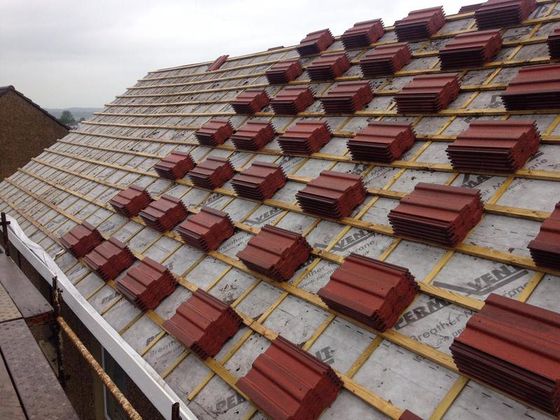
HIGHTOP ROOFERS LONDON - ABOUT US
Hightop Roofing London are your local "roofers near me" service. In partnership with Hightop Roofing Services we are experts in all aspects of roofing including flat and pitched roofs. We serve all London boroughs from Croydon to Enfield and Havering to Hillingdon, if you are a building owner in London we have you covered.
Our roofers in London take great pride in delivering an outstanding quality of work and customer service and are approved by the Confederation of Roofing Contractors. Our large number of client referrals and repeat customers are testament to this and why we are considered among the leading roofing companies in London.
For further details on our range of services, contact a member of our team today.
Want to join us?
At Hightop Roofing London, we are always looking to add to our team of experts. If you have a passion for excellence why not enquire out about our current vacancies. fill out our contact form below and we will be in touch
Roofers London in the community
Our roofers in London are more than happy to be involved in community projects when our schedule allows. We recognise the importance community service can play in enhancing quality of life and outcomes. If your project could use our expertise contact Hightop Roofing London today.
Want to join us?
At Hightop Roofing London, we are always looking to add to our team of experts. If you have a passion for excellence why not enquire out about our current vacancies. fill out our contact form below and we will be in touch
Roofers London in the community
Our roofers in London are more than happy to be involved in community projects when our schedule allows. We recognise the importance community service can play in enhancing quality of life and outcomes. If your project could use our expertise contact Hightop Roofing London today.
HIGHTOP ROOFERS LONDON - LATEST NEWS POSTS
Visit the Hightop Roofers London blog for all our helpful tips and articles!


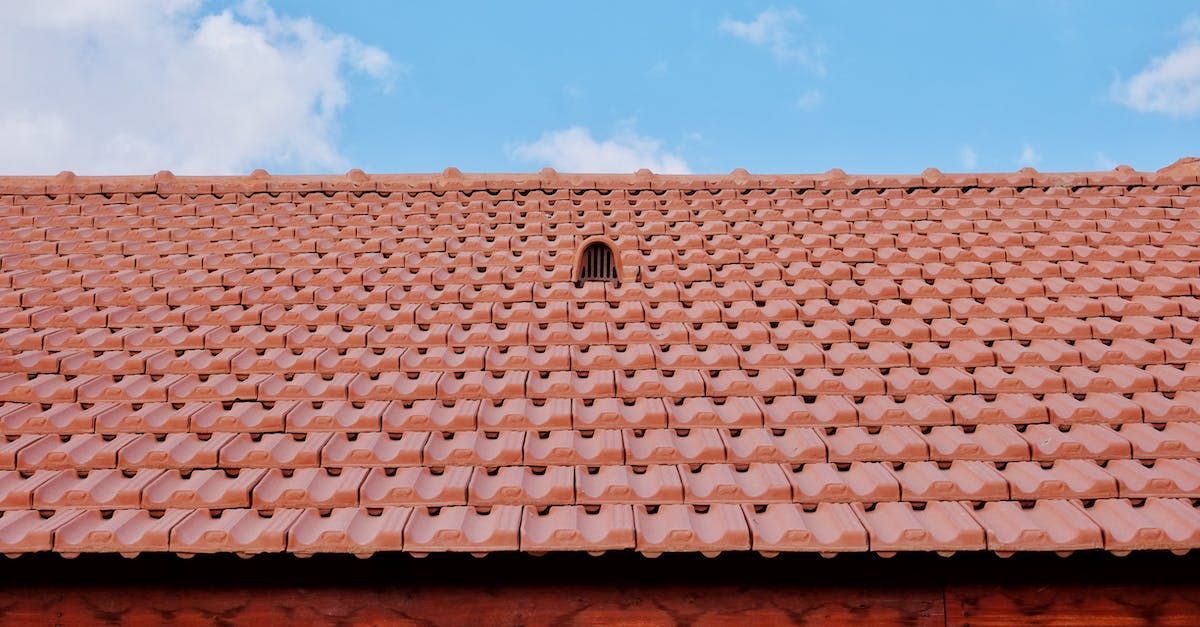

Hightop Roofing in London - When to Replace?
Here at Hightop Roofing London, we always recommend that property owners inspect their buildings regularly. It is important to understand that all elements of your building have a natural lifecycle. Like other external parts of a building, roofs are under constant exposure to the elements, be it rain, UV rays, frost, snow, wind and even lightning. This continued pressure, over time, can lead to wear and tear of your roof. Naturally, roofs that are in more exposed locations will degrade faster over time, meaning that the average lifecycle of a roof can be anywhere from 15 to over 100 years! This variance is also contributed to by the type of covering on the roof. Generally, flat roofs will have a shorter lifecycle than pitched roofs. This is something Hightop Roofers in London recommend to bear in mind if you own or manage a property with a flat roof, or you are looking to construct a roof on your new build property.
There are many reasons why you may wish to have your roof replaced by our professional roofing in London team. Here are some of the top reasons why Hightop Roofers London advise our customers to consider changing their roofs:
- Cost effective method of building maintenance compared to making repeated temporary roof repairs
- Prolong your building’s lifecycle
- Improvement of the building’s thermal energy efficiency
- Reduced chance of leaks and ponding water
- Roof renovation can enhance the aesthetic appeal of your building
- Provides an opportunity to improve sustainability and reduce environmental impact of the building
- Provides an opportunity to provide renewable energy to your property, such as solar thermal and photovoltaics
- Helps to enhance health and safety, particularly where the roof is accessed by maintenance teams
- To remove and replace antiquated roofing materials with modern, cheaper, more environmentally alternatives
HIGHTOP ROOFERS LONDON - RECENT PROJECTS
Hightop Roofers London - Roof Surveys
The difficulty in knowing when to replace your roof is in the fact that roofs are virtually impossible to survey from the ground. Where possible, Hightop Roofing London advise all our customers to have a roof survey carried out by a specialist roofing contractor such as us. Professional roofers are well equipped to safely carry out your roof inspection and in the interests of health and safety, we recommend that all building owners refrain from carrying out inspections from a ladder, or any means other than a professionally erected scaffold. That said, there are some common signs that our roofers in London advise to look for when attempting to safely assess the condition of your roof from the ground as follows:
Look at the ridges and hips of your roof. These are the horizontal and diagonal apexes where sides meet. Make sure that ridge and hip tiles are securely fixed down and that any mortar bedding is in place and not crumbling. Hightop Roofers London recommend to check the verges of your roof to make sure that any mortar flaunching is in place. This mortar is used as an effective measure to weather seal open ends of tiles on gable ends. If the verges are ‘dry verges’, then they will be sealed with plastic capping. Ensure that these capping's are securely fixed to the edges of the tiles on the gables.
If your roof is tile or slate, visually check each row to make sure that no tiles appear to be loose or missing. Also check for signs of moss growth or any signs of infestations.
Next, Hightop Roofing London advise to check the roofline of your property. This is the portion of the roof where the tiles meet the fascia board. The fascia and soffit provide a protective capping to the end of timber rafters and they also ensure that roof timbers are adequately ventilated. This helps to prevent problems of condensation and rot. The fascia and soffit board are usually made of PVC, timber or aluminium. Wooden fascia's and soffits must be painted regularly to help maintain them in good condition. Check that gutters and gutter brackets are securely fastened to the fascia board. Gutters can often leak due to poorly fixed brackets or poor joints and this can cause numerous problems with water ingress into the building. Here at Hight Roofers in London, we always advise the importance of this stage when surveying the condition of your roof and rainwater components.
You can also carry out checks from inside your property to determine the condition of your roof. Roofers in London recommend to routinely check your upper storey ceilings for signs of damp staining or black mould, as this can be an indication that your roof is leaking to some capacity. Even if the leak is minor, it is best to get it checked by experienced roofers, as small leaks can cause large amounts of damage over time. In fact, Hightop Roofers London visit many customers, who could have saved a lot of time, stress and money had they got their roof leak seen to at an early stage.
If you are able to safely access your loft, then this can provide a good opportunity to inspect your roof up close from the inside. Check the condition of rafters, insulation and breathable membrane. You should not be able to see any daylight coming through your roof into the loft. Remember that water will find its way through even the tiniest of gaps, so if you can see daylight, then you will most likely get a leak. Feel the insulation to make sure that it is not damp. Wet insulation is ineffective and can be a sign that your roof is leaking. For professional guidance on the state of you interior roof, contact Hightop Roofers in London today.
If your property has an off-shot, porch, conservatory, or other extension, then you may be able to safely survey these areas from an upper storey of the building. Hightop Roofers in London advise clients to look for signs of bubbling in flat roof membranes, ponding water, cracks and moss growth – these can all be signs that the condition of your roof has deteriorated. It is prudent to know that early detection is the best strategy for avoiding problems with your roof, however when the time comes that your roof needs replacing, leave the work to the experts. Call Hightop Roofing London today to find out about our first-class roofing service, from inspection through to completion.
CALL ROOFERS LONDON TODAY - 02039847848
Roofing in London - Roof Repair and Maintenance
As a distinguished roofing in London service provider , we are familiar with carrying out repairs to a wide variety of roofs of all shapes and sizes. Hightop Roofing London provide solutions to client across the city, north, south, west and roofing East London. The thorough approach provided by our independent contractors in London will help to ensure that we find any sources of leaks and problems with your roof, helping you to get back to normal as soon as possible and preventing further damage to your property. Some common roof repairs that we respond to are: roof leaks, cracked tiles, slipped tiles, vandalism or theft of lead flashing, flashing repairs, chimney pointing, roof chimney leaks, leaky gutters and more. We also offer an emergency call out service for those times when it is not safe or practical to leave your roof unattended. Store our contact details in your phone for the next time you need emergency roofers in London.
Whilst repairing your roof, Hightop Roofers London can also provide a roof cleaning service. This is a simple but highly effective way to keep your roof in great shape for years to come. Many roofing related problems begin because the roofs are covered in leaves, moss, dirt and debris. These materials can block the flow of water and also cause tiles to dislodge which can be a source of leaks. Contact our independent roofers in London today for more information about our comprehensive roof cleaning solutions..
Roofing Terminology
At Hightop Roofing London we try to educate our clients, as well as learn from every single job that we do. Educated customers are able to make better decisions and are less likely to part with money for substandard roofers. With that in mind, here is a list of roofing terminology that Hightop Roofers in London think is useful to know:
Pitched Roofs – these are roofs which have a pitch of more than 10°. Most domestic homes in the UK have pitched roofs. These roofs are usually covered with tiles of some description.
Flat Roofs – roofs with a pitch of less than 10° are considered flat roofs. These are normally found on high rise blocks and commercial buildings and are typically covered with a proprietary roofing membrane such as single ply or bituminous mineral felt.
Roof Hip – external angle of a roof covered with hip tiles.
Roof Valley – internal junction of a roof usually lined with a lead or a plastic gutter.
Roof Ridge - this is board spanning the apex junction of the roof and is covered with a ridge tile. Ridge tiles are often vented to allow air flow through the roof structure.
Gable Roof – a gable roof is triangle in shape where sides meet at the ridge apex.
Roof verge – the verge is where the top of a gable wall meets the roof covering. This junction is sealed with a plastic cap or mortar.
Roofing Single Ply Membrane – a form of flexible proprietary roof covering usually used on flat or low-pitched roofs. Single ply membranes are made from different forms of plastic.
Roofing felt – a flexible bituminous membrane containing minerals with a durable surface. Used for flat roofs and low-pitched roofs.
Fascia and Soffits – the capping used to protect the ends of rafters and to provide ventilation to the roof. The gutter is fixed to the fascia.
Rafters – these are the structural timber members which make up a roof and support the roof tiles.
Tile battens – treated timber battens which are used to pin down the underlay and act as a fixing point for the roof tiles.
Roofing Underlay – this is the breathable membrane which is laid over the structural rafters and provides a secondary barrier to water ingress.
Guttering – fixes to the fascia and carries water away from the roof. Usually made out of plastic, timber, aluminium or cast iron.
Gutter Cleaners London
Blocked gutters can be an overlooked cause of many building related problems, however the fix is usually simple and quick. Gutters aid the flow of water from your roof to common drains, if these become blocked, then water may overspill and leak onto the external façade. This can cause internal damp issues and unsightly staining down the exterior of the building. Here at Hightop Roofing London as part of our wide-ranging roofing service, we offer gutter and downpipe installation and cleaning. Gutters regularly become blocked by leaves and sediment from water runoff. Having your gutters cleaned is a logical thing to request if you are having any associated roofing works. Roofers in London advise all our clients to have this done at the time of any roofing works.
Hightop Roofers London - How Roofing is Done
The first stage in any roofing project begins with a thorough survey of the roof to determine the extent of any damage. At Hightop Roofing London, our specialists can provide you with a survey inspection to assess the condition of your existing roof. Alternatively, on new build projects, our roofers can work to designs presented by the client’s architect. The design stage should also encompass structural surveys, dew point calculations and wind loading assessments. Once an appropriate course of action has been agreed, it is imperative to make sure that the roofing work can be carried out safely. Secure access systems such as scaffolds and mast climbers need to be erected. These will enable the roofing works to take place as safely as possible. Thought must also be given as to how materials will be safely transported up to the relevant height and how waste materials will be disposed of. Contact Hightop Roofers London today for professional advice and guidance on your next project.
On existing properties, the roofing contractors will need to safely strip the existing roof covering. This will involve removing the tiles, sheeting, or flat roof covering and safely disposing of the material. On pitched roofs, the tile battens and felt underlay will next be removed. Hightop Roofing London, advise planning the works around the anticipated weather conditions, as once the felt underlay is removed, the inside of the property will be open to the elements. New breathable membrane underlay is then laid over the roof rafters, and nailed down with tiling battens ready for the new roof tiles to be installed. Valley gutters and secret gutters should be also be installed at this stage along with the fascia boards, barge boards and soffits. The timber battens should be spaced according to the size of the tile to minimise the number of tile cuts required and to ensure that each tile can be fixed securely through the underlying tile.
Next, the roof tiles are installed according to the manufacturer's instructions. It is important to note that tiles are often designed for specific roof pitches, so make sure to always seek the technical guidance prior to selecting your roof tiles. Here at Hightop Roofers in London, our roofing experts are familiar with the newest roofing technologies and will be able to advise on the appropriate tile to use on your new roof. Dry ridges, verges and flashings should be installed as the work progresses. Once the roof tiles are fitted and the property is weathertight, visual checks should be carried out to make sure there are no outstanding defects.
On a flat roof, any insulation and vapour barriers will be removed back to the existing structural deck. At this stage, Hightop Roofing London recommend inspecting the structural deck for signs of damage and remedial repairs should be carried out where necessary. Once the structural deck is repaired (if necessary), the roof surface should be primed ready for the instalment of a vapour control layer. The vapour control layer prevents passage of water vapour from inside the property to outside areas, reducing the risk of condensation. Once the vapour barrier is down, the insulation can be laid. This may be bedded in adhesive, mechanically fixed, or both. The results of any structural and wind loading calculations will determine the appropriate fixing method for the insulation. The insulation may need to be graded to allow the flow of water from the roof. Hightop Roofers London understand that current building regulations specify that new roofs must meet a minimum u-value requirement of 0.18W/m2.K with a minimum fall of 1:60. Allowances must be made for insulating around any service penetrations through the roof such as soil and vent stacks and gas flues. Where the roof was not previously insulated, pipe extensions and collars will need to be fitted to accommodate the additional height added to the roof by the new insulation.
Once the insulation is fitted, the final covering can be applied. This is usually a ‘torch on’ or heat activated system, where a heat gun or blow torch is applied to the underside of the covering to enable it to fully adhere to the insulation. Roofing contractors in London may need to apply for a hot works permit to enable them to be able to carry out such work. Alternative cold applied liquid systems are available where the use of naked flames is prohibited, impractical, or deemed too unsafe. Once the final roof covering is laid, an electronic integrity test can be carried out to detect any leaks with the roof. The results of this test can help to provide you with the peace of mind that your new roof is fully weathertight. Our Roofers in London team consider it to be worth the additional investment for all our customers.
We appreciate the process of repairing or renewing a roof can be a daunting task with many technical steps involved in the process. Furthermore, the health and safety implications of any errors can be fatal. That is why Hightop Roofers London are on hand to help through each stage of the process. We recommend that all our customers enlist the services of a professional roofing company. Roofing London offer all our customers the opportunity to inspect the completed roof to make sure the work is to their satisfaction. Only then will the job be considered complete.
Contact one of our professional roofers in London today to find out more about our services, and for a free quote on your next roofing project.
CALL HIGHTOP ROOFERS LONDON TODAY - 02039847848
Why Roofing is Important
As distinguished roofers in London, we are familiar with carrying out repairs to a wide variety of roofs of all shapes and sizes. Hightop Roofing London provide solutions to client across the city, North, South, West and roofing East London. Our thorough approach will help to ensure that we find any sources of leaks and problems with your roof, helping you to get back to normal as soon as possible and preventing further damage to your property. Some common roof repairs that Hightop Roofers London respond to are: roof leaks, cracked tiles, slipped tiles, vandalism or theft of lead flashing, flashing repairs, chimney pointing, roof chimney leaks, leaky gutters and more. We also offer an emergency call out service for those times when it is not safe or practical to leave your roof unattended. Store our contact details in your phone for the next time you need emergency roofers in London.
Whilst repairing your roof, Hightop Roofers London can also provide a roof cleaning service. This is a simple but highly effective way to keep your roof in great shape for years to come. Many roofing related problems begin because the roofs are covered in leaves, moss, dirt and debris. These materials can block the flow of water and also cause tiles to dislodge which can be a source of leaks. Contact one of our London roofers today for more information about our comprehensive roof cleaning service.
Hightop Roofing in London - What Roofers Do
Roofers are the professional tradespeople responsible for carrying out the practical aspect of repairing and replacing roofs. A good roofer will have undertaken some form of practical City and Guilds qualification or equivalent relevant to their trade. This is in addition to years of practical on the job experience. One of the most important aspects of what roofers do is health and safety. Roofing brings about the inherent risk of working from height and professional roofers should have the knowledge and resources to be able to work safely, on any number of roofs. If you have done any research, then you may have asked yourself why roofers charge so much, and it is true that even minor roofing jobs can be relatively expensive. What you must consider, is that roofers are professionals just like other tradespeople, who have taken years to become competent at their craft. In addition, they carry the risk of having to work at significant height, which brings about high degrees of responsibility for themselves and members of the public.
Roofing companies will often source materials and scaffolds to enable them to work safely, which must also be factored in to the price of the completed works. Once this is considered, it is understandable to see why roofers charge the fees they do. Hightop Roofing London aim to be competitive in all pricing, because we recognise that roofing work sometimes brings a financial burden to people from all backgrounds. Call Roofers London today to find out about our competitive rates.
Hightop Roofers London would like to take an opportunity to remind all property owners about the dangers of attempting to carry out roof works alone. Whilst it may be tempting to work from a ladder, it can be extremely dangerous when carrying out any form of technical roofing work. Roofers London recommend that our customers call in the experts if they need any work from height, in the interest of health and safety.
What Roofing Material Lasts the Longest ?
Here at Hightop Roofing London, we understand that the lifespan of a roof can vary drastically, based on the exposure level of the roof, the materials used on the roof and the standard of workmanship. Traditional roof materials such as slate tiles can last in excess of 100 years, whereas the typical guarantee for a mineral felt roof will be in the region of 20 years.
Generally speaking, pitched roofs have a longer design life than flat roofs, so for longevity, tiles made of concrete, slate, synthetic slate, galvanized corrugated metal sheeting and clay are all great choices. Another factor to consider is whether a roof will be used for pedestrian access. Roofs which serve as walkways, balconies, or are used frequently by service engineers may need to be designed with a robust surface covering such as asphalt or concrete paving slabs to enhance longevity.
Hightop Roofing London recommend to always consult with the material supplier when determining the intended longevity of the surface covering. Ask for product guarantees and BBA certificates to give yourself a good understanding of the expected lifecycle for your roof. Our reliable roofers in London, are able to supply you with high quality materials for your roofing project, giving you peace of mind that your roof will stand the test of time.
Industry Leaders
Hightop Roofers London have experience of providing all our customers with possibly the best roofing service in London. From the initial enquiry, through to the completed job, our aim is to make the process as stress free for our customers as possible.
Quality Guaranteed
We want to involve you at each stage and ensure that we listen to your needs. We invite valued feedback from clients and we use this as a way to continually improve our service.
High Expectations
Our glowing testimonials show just how seriously Hightop Roofers London take customer service and how much we appreciate the people and communities we serve. Contact our friendly team today to find out more about how we can help you!
Are Roofing in London Companies an Essential Service ?
Under the latest UK government guidelines, construction work is considered an essential service. Moreover, Hightop Roofers London understand that a leak to your roof can cause serious damage to your property and may be a health and safety risk if left unattended. Consequently, our Roofing in London team advise that you get your roof inspected as soon as possible, if this is the case. If roofing work is required to your home, then this may still go ahead, however, operatives should maintain a Covid-19 secure environment at all times.
At Hightop Roofing London, you can be assured that all our tradesmen and women will maintain strict health and safety standards when it comes to Covid-19. We politely request that all our customers inform us if they are shielding, have symptoms, or are in the vulnerable category. This will enable us to organise works in the safest manner possible. For further details on our comprehensive range of roofing solutions and your free quote contact Roofers London today.
HIGHTOP ROOFING LONDON - FREQUENTLY ASKED QUESTIONS
When do roofs need to be replaced?
At Hightop Roofing London this is a question that is frequently asked by our clients. When installed correctly, the longevity of a newly constructed roof or a roof replacement can be in excess of well over 50 years. The lifespan of a flat roof is less than this. A factor that will have a large bearing on the longevity of your roof is its location. As you would expect, roofs that are situated in volatile and harsh climates will need replacing more often and require extra repair work than those that are located in calmer environments. Hightop Roofers London consistently advise property owners to inspect their roofs for signs of wear and tear and general decay, paying special attention to the areas of the roof where there is flashing, ridge tiles and the guttering. When inspecting your roof, check for any tiles/shingles that are loose or cracked, large amounts of moss growth and pooling water. If you find that you are frequently spending money for roof repair work, or you are having issues with an excessive amount of leaks than it may be time to have your roof replaced. For professional advice contact our Roofing London team today. Our roofers in London are able to inspect your roof to identify the scope of any repair work and provide an honest and accurate evaluation of your roofs overall condition and whether a replacement is needed.
What is the purpose of roof flashing?
Any joints that are created within a roof will have flashing fitted if the roof has been built correctly. Chimney joints, roofs valleys, joints around dormer windows, vents etc, should all have metal or lead flashing installed. In the past, lead was the most common material for flashing because it was mouldable without splitting. However, zinc sheet is now a popular substitute due to concerns surrounding lead contamination. The function of roof flashing is to protect all roofing joints, ensuring they are fully waterproof. Without any seal, the joints would be vulnerable to water ingress. This could potentially cause significant damage to the structure and even the foundations of your building. To make sure the joint is fully watertight, Roofers London highlight the importance of having your roof flashing installed by professionals. Flashing that is not fitted correctly will lead to water finding its way into you building causing internal damp issues. For expert roofing advice and your free quote contact Hightop Roofing London today.
Can roofs be replaced in the Winter?
Hightop Roofing London regularly get asked by our customers if replacement and construction of new roofs can be completed in the Autumn and Winter months. To address this topic, we need to separate roof repair projects from roof replacements and new roof builds. Roof repairs can be performed just as well in the Autumn and Winter months as in the Summer. As a matter of fact, Hightop Roofers London recommend performing any modest roofing defects as promptly as possible. This will prevent such defects potentially becoming larger issues in the future. For instance small leaks do tend to progress into larger ones during the Winter due to the adverse weather conditions. This can potentially have significant consequences for the internal structure and foundations of your building. Our roofers in London have experience of completing a vast number of repairs during the Autumn and Winter months.
The decision to go ahead with roof replacement and new roof construction projects is wholly dependent on the category of roof. For example, if you are having a flat roof fitted that requires a self-adhesive seal this cannot be completed below certain temperatures. However, those that are mechanically attached or sealed using a blow torch are fine to be undertaken during the colder months.
When contemplating the construction or replacement of a pitched roof, Hightop Roofing London advise that shingle fitting should be carried out by following the manufacturer’s guidelines. If the temperature is too cold the shingles will readily crack under the pressure of the nail when being fixed to the wooden battons. However, roof tiles and other finishing materials can be attached regardless of the temperature. Hightop Roofers London can undertake roof replacement and new roof construction in the Autumn and Winter months depending on the category and material constitution of the roof. For further details and your free quote contact Roofing London today.
How can I tell if my roof needs to be repaired or replaced?
Our Roofing London team understand how challenging it can be for the average person to recognise if their roof is repairable or if it needs replacing. Our independent roofers in London, recommend to routinely survey your roof, approximately two or three times per year, to identify any potential defects and wear and tear. It is preferable to inspect the roof with a set of binoculars. However, this can also be done with the naked eye. During the survey look for any missing or cracked shingles or tiles, loose shingles or tiles, ripped flashing, moss etc. In addition, inspect your internal roof space for any leaks. For added confidence Roofing London recommend having an expert survey your roof. Our independent contractor’s offer a roof survey and inspection service. Get in touch with Roofers London today for more details and your free quote.
What is roof flashing repair?
Here at Hightop Roofing London, we appreciate that a common roof defect is flashing that has ripped or become loose. This can cause your roof to leak. Contemporary flashing is made from coated steel. If your roof has been fitted correctly, you will find flashing sealed across any joints such as chimneys, valleys, skylights, dormer windows etc. The main purpose of flashing is to prevent rainwater seeping into the joints causing water ingress.
Holes and tears in the flashing that are slight can easily be repaired by your local roofers in London. To do this the area around the defect can be coarsened and sealed over with a fresh layer of flashing. This is usually attached using specialist roofing mortar.
Roof flashing that has experienced significant damage or wear and tear will need a completely replacing. Roofers London, have worked on a large number of client roofs where this has been the situation. In this course of repair, a series of row of roof tiles or shingles will need to be removed as well as the existing flashing. The new flashing will then be laid and sealed with specialist roofing caulk. This will ensure your roof is fully watertight.
If you are having issues with a leaky roof, through defective flashing, one cause could be ice. During periods of cold weather, ice that melts can make its way underneath the flashing and lining that covers the timber rafters. If you find that you are suffering from water invasion, torn flashing or flashing that is coming away from the roof could very well be the culprit. Flashing is fitted where water tends to collect. Therefore, any damaged flashing can lead to significant internal water ingress. This is one factor why Roofers London advise to frequently have your roof inspected for defective flashing, cracked or loose roof tiles or shingles, worn mortar between the roof coverings etc. For expert guidance and your free competitive quote contact Hightop Roofing London today.
What is chimney pointing?
Our Roofing London team recommend our building owners have their chimneys inspected and maintained on a routine basis. During the inspection, one aspect to check is the mortar seal between the chimney brickwork. Over a period, the mortar seal suffers wear and tear. This is accelerated if your building is exposed to continual harsh weather conditions. Whilst the chimney brickwork can last in excess of 100 years, the mortar seal will, almost certainly, require refreshing before then. Indeed, our roofers in London advise clients this can be as little as 25 years. This is especially true if your property is exposed to harsh weather conditions such as excessive amounts of wind and rain.
During the inspection, if you find that your chimney needs mortar repair, Hightop Roofers London advise having pointing or tuckpointing carried out as soon as possible. This course of work is likely to save you further repair work and money in the future. Indeed, substantial decay to the mortar seal could cause your chimney to collapse in a worst-case scenario.
During the repointing work, the old mortar will be removed and replaced with fresh, new mortar seal. There are a number of advantages to having your chimney mortar replaced. These have been noted down below
- The wear and tear of the existing mortar is stopped.
- You can have confidence that the structure of your chimney will be in a satisfactory condition.
- The repointing course will make sure that not water enters your building through the chimney stack. This is key as water ingress can potentially cause structural and foundational damage.
- Repointing is a cost-effective course of action than a full chimney rebuild.
- The complete value of your building will remain intact will correct regular maintenance.
For further details on our roof related services please contact Hightop Roofers London today for your free quote. Alternatively, visit our services pages.
Can roof tiles be jet washed?
Our Roofing in London team recommends building owners have their roofs cleaned on a routine basis. This course of maintenance is important to make sure your roof remains in a satisfactory condition and is able to protect your property. Over a period, silt, dirt, debris, moss, and other objects can build up on your roof covering. Moss can be particularly troublesome as it retains moisture. This will not only add weight to your roof it will also raise the potential of water leaking into your premises. Additionally, the growth of moss on roof shingles and tiles hinders moisture from evaporating, therefore they stay wet. Internal water invasion can cause significant defects to the roofing structure such as wood rot to the timber rafters, mould growth and also damage to the internal décor. A frequent problem we encounter at Roofers London, is also moss and silt being caught between joints and seams. This raises the potential of water seeping into your internal roof space.
Hightop Roofing London understand that manufacturers of roof materials advise against the use of jet or pressure washers to clean your roof. The force of the water can damage the protective coating on the shingles and tiles. The coating is manufactured to wear and tear over a prolonged period. However, the pressure of the water can compromise this, decreasing the lifespan of your roof. Utilising a pressure or jet wash can also raise the potential of water leaking into your internal roof space if water flows between the joints.
At Hightop Roofers London, we advise scrapping the roof covering with a brush that has rough bristles. Completing this on a dry day is advantageous as the moss and silt will be easier to remove. Chemical treatments can also be applied to kill the moss and other weeds, it will also discourage the regrowth. Our roofers in London recommend contacting your local specialists to undertake the clean. This is due to health and safety guidelines To provide peace of mind on the structural integrity of your roof, we advise having frequent inspections and cleans. For further details on our extensive roof related solutions and your free quote please contact Hightop Roofing London today.
HIs a leaking roof dangerous?
At Hightop Roofing London we recommend that building owners deal with any roof leaks in a prompt manner. A lack of proper care and maintenance, damage caused by adverse weather and insufficient roof insulation are common reasons for leaking roofs. Hightop Roofers London advise that even the smallest of leaks are repaired as soon as possible. Water that leaks in to your home on a chronic basis can cause costly and significant structural and foundational damage. Other things that you need to consider, water ingress can cause damp in your internal roof space making your insulation less effective leading to costlier energy bills. In addition, interior damp can cause growth of mildew and mould in your interior décor. This can cause health problems, especially for those individuals with asthma and sinus problems. Finally, leaking roofs can cause damage to your internal roof space e.g., attic or loft if left unrepaired. Water that finds its way into your property has the potential to cause deterioration to your paintwork and plaster on ceiling and walls and damage the electrics. This presents health and safety concerns. We always advise you have roofs leaks treated as soon as they are noticed. For free specialist advice and your competitive quote contact a member of our Hightop Roofers in London team today.
Are roofs safe to walk on?
Here at Hightop Roofers London, we advise all property owners to never assume that roofs are safe to walk on. Placing your weight on a roof that has not been constructed to carry human impact can have health and safety implications and lead to fatal accidents. Prior to walking on any roof, you should examine the internal roof makeup. Try and clarify the materials that the roof is constructed from and conduct a full risk analysis to identify whether the roof is safe to step on. Try and speak to a Roofing London company for professional advice. Some roof designs have designated walkways that are specifically for human traffic. If you have any apprehension about the safely accessing your roof, then you should contact professional roofers in London. For free expert advice, further details on our services and your free competitive quote, please contact Hightop Roofers London today.
Why does moss grow on roofs?
Our roofers in London often come across roofs that have problems with moss growth. As well as being unsightly, moss can have a detrimental impact on your roof, leading to early deterioration over time. The reason for this is that the moss roots can grow underneath tiles, causing them to become unstable and cracked. This obviously increases the chance of your roof leaking, which is what we specialise in rectifying at Hightop Roofing London. So now that you know why moss can be a problem, how do you go about identifying roofs where moss growth can be a potential problem? Moss grows well in damp conditions, meaning that if your roof does not experience much sunlight, then moss will grow more readily than if your roof is allowed to dry out. Therefore, north facing roofs are more susceptible to moss growth than south facing roofs. In addition, clay and concrete roof tiles allows moss to spread more readily, as their porous surfaces facilitate a damp environment where moss roots can take a firm grip. If you are suffering with issues relating to moss growth on your roof, then give Hightop Roofers London a call to assess your roof and provide a corrective course of action.
What is a flat roof?
Here at Hightop Roofers London, we understand that building owners have the ability to make educated decisions, regarding any roof related projects, once they are informed on the build of a roof. This is why our roofers in London have outlined the basic schedule for a flat roof construction.
A common type of roof used on properties throughout the UK is a flat one. These roofs can be found on a number of buildings, such as garages, homes, commercial buildings, extensions etc. This category of roof is preferred amongst many building owners because of the value for money. However, it should be highlighted that the lifespan of a flat roof can be significantly shorter than a pitched one.
Timber joists are the supporting structure on a flat roof. These are installed across the shorter sides of the roof. A timber board is then placed over the joists to withstand the load. Our Roofing London team advise building owners that flat roofs must have a slight pitch. The fall should be between 1 and 10 degrees to allow for the surface run off of any rainwater or melted snow and ice etc. The lack of any pitch or fall would lead to water pooling, potentially increasing the chance of leaks occurring. Given that some flat roofs are installed with insufficient pitch it is no wonder why pooling water is a leading cause leaks on flat roofs.
A timber board is required to attach the final roof materials on. The boards are traditionally manufactured from smartply or plywood. and attached to the wooden joists. To achieve a stable base the boards are fitted in a staggered manner. Insulation for the roof is also installed at this stage. The amount of insulation is entirely dependent on the use of the building. Once the boards have been installed the final roof covering can be attached. Roofers London consistently outline the importance of having a final roof covering properly installed to make sure the roof is waterproof. Some common flat roof coverings include EPDM, rubber, PVC, asphalt, bitumen and applied liquid systems. The advancements in technology and materials have allowed for the construction of flat roofs that have minimal maintenance and longer lifespans.
For free expert advice and your competitive quote please contact our Hightop Roofing London team today. Alternatively, visit our service pages for further details.
Can moss cause roofs leaks?
Hightop Roofers London advise property owners that moss on roofs can potentially grow in between and on the underside of roof coverings e.g., tiles and shingles. Over a prolonged period, this can lead to defects to your roof where you may experience water ingress and leaks. As the growth of moss becomes thicker and greater it can start to dislodge roof tiles and shingle. This makes the underlying roof construct vulnerable to water ingress and outside elements. In addition, our Roofing London team note that there is a higher probability for loose roof shingles and tiles to be blown off during high winds.
Building owners should be aware that large amounts of moss growth can encourage debris, dirt, obstructs and water to collate on roofs, again leading to the potential for water ingress. To ensure moss growth on roofs is kept to a minimum, our independent roofers in London recommend regular roof care and maintenance, which is what we offer. During a roof clean, from our team, we will apply a formula to eradicate the moss and limit the potential appearance in the future. We will also remove dirt and debris which can stimulate and encourage moss growth. To minimise moss appearance, Roofers London advise maintaining the growth of trees, bushes and hedges as moss has been shown to grow particularly well in cool and shaded areas. For free expert roof related advice and your competitive quote contact Roofing London today.
Can roofers work in the rain?
Health and safety of our independent contractors and clients is a top priority for Roofers London. Therefore, it is important that we consider the weather conditions before undertaking any work on your roof. A frequent question we are asked is whether roof related work can be completed in the rain, in brief the answer is no! All things considered, whilst roofing projects should not be undertaken in the rain, with thoughtful planning, from your professional roofers in London, any work can be performed around the adverse weather. It is important that our clients recognise that rain can present a real hazard for our team of slipping on roofs, making it unsafe to carry out any work. Additionally, if the roof has been stripped back, rainwater can enter your building which presents an electrical hazard. In addition, if other areas of your property become wet such as timber bastons, plaster, plywood, this can cause early decay to your building. If adverse weather conditions do take hold, our Hightop Roofing London team will reschedule the work for the next available dry day. Please be assured our independent contractors track the weather forecast very carefully to allow the removal and replacement of your roof finish around predicted bad weather. This minimises any disruption for your roof construction. For free expert advice and your competitive quote please
contact
Hightop Roofers London today.
Are flat roofs cheaper than pitched roofs?
At Hightop Roofers London, we understand that roofs play a vital role. Two important roles include protecting your building from the elements and improving energy efficiency. There at two main categories of roofs,, flat and pitched. A pitched roof is a classically shaped roof that slopes downwards. Whilst a flat roof, as its name suggests is flat and has a slope of less than 10 degrees. Our Hightop Roofing London team appreciate that flat roofs are becoming more common on buildings. They offer great appeal because they provide greater value for money and can be constructed in a short amount of time. Flat roofs tend to be cheaper to construct than pitched because there is a need for fewer materials and labour costs are lower.
Our roofer in London do advise property owners that are looking to install flat roofs that they can be less effective at drainage than pitched roofs. This being said, improvement in design and materials have resulted in greater protection for stagnating water, which can cause leaks. Property owners should be aware that the longevity of a flat roof is around 30 years, which is substantially shorter than a pitched roof. Therefore, with roof care and replacement costs, the original savings on a flat roof construction could potentially even out during the lifespan of a pitched roof. For free specialist roofing advice and your competitive quote contact Hightop Roofers London today.
Advantages of a hip roof
Hightop Roofers London have experience working on all types of roof this includes properties used in a domestic, commercial and industrial capacity. A common category of roof our roofers in London work on are hip roofs. A hip roof design is one in which all sides of the roof slope downwards toward the exterior walls. Hip roofs are usually more expensive than gable roofs. The main function of your roof is to protect your property from the outside elements.
Our Hightop Roofing London team advise buildings owner that there are a number of advantages to the hip roof design. Firstly, the structure of the roof allows it to be more self bracing and stable. Due to the slanting design on all sides, it creates strong resistance and needs minimal support than other category of roofs. Adding to this, due to the nature of their constructions, hip roofs are more equipped to handle adverse weather conditions, offering durability and protection. They are able to keep your property safe from strong winds, storms, wind, snow and rain
.
An added benefit of the hip roof design is the drainage it provides. All sides slope toward the ground, meaning minimal amounts of water are allowed to pool. This is advantageous as water that stagnates on roofs can create greater stress on and raises the potential for leaks. Hip roofs also have a greater surface area for ventilations and internal roof space.
Finally a hip roof is aesthetically pleasing and provides greater design flexibility. The classical and stylish looks offers curb appeals. For free expert advice and your competitive quote
contact Hightop Roofers London today.
Why do roof tiles slips?
Our Hightop Roofing London team regularly advise property owners that their finished roof coverings are the first defence against any challenging weather. We are often asked to visit properties where roof shingles or tiles have become loose. Ideally, this should be dealt with in a prompt manner as it can lead to further problems.
Hightop Roofers London have the knowledge and skill to deal with all manner of roof repairs including slipped tiles and shingles. The main cause of this is adverse weather. Windy conditions can force your finished roof coverings out of position, particularly if they have been poorly fastened in the first place. The latest changes to the British Standards mean that all roof tiles and shingles must be attached by nails to reduce instances of slippages. Another common reason why roof shingles and tiles slip is due to the decay in fixings. Our roofers in London have come across several instances where fixings have rusted meaning the attachment of the tile or shingle has become compromised. In addition, if the wooden rafters become wet or rotten this can cause your tiles to become loose.
Slipped roof tiles and shingles should be repaired as soon as possible as they create a vulnerable spot in your roof where water can enter. Further tiles can also be loosened if wind is able to whip underneath. To have your slipped roof coverings repaired contact Hightop Roofers London today, we offer free expert advice and competitive quotes.
Can flat roofs leak?
Hightop Roofers London appreciate that flat roofs are simpler to build than pitched. However, they do require more maintenance work due to the nature of the construct. We understand that for the average property owner, it can be difficult to identify if their flat roof is in a satisfactory condition. For this reason we recommend getting in touch with your local professional roofers for routine inspections. In addition to leaks, flat roofs can also experience other issues that we have outlined.
A common problem that occurs on flat roofs is alligatoring. This is where the stretchiness in the roof decreases and it begins to split and bubble.. If your flat roof has reached this stage you will, almost certainly, need a new roof. Our Hightop Roofing London team also encounter flat roofs suffering from leaks and moisture retention. The lack of gradient means, when a leak occurs, water ingress can lead to mould and fungus in the internal roof space. To remedy this, get in contact with your local professional roofing company as soon as possible. Related to this issue is pooling or stagnant rainwater. Structural movement can lead to dips in the roofing membrane. Although the sheath is waterproof, the dips should be repaired to prevent rapid deterioration of your flat roof.
Flat roofs constructed from asphalt are expected to expand and contract with temperature changes. The regular movement can lead to the flashing pulling away from the roof edges leaving your roof susceptible to leaks. Our roofers in London always advise to routinely survey your roof flashing for signs of severe wear and tear. You may need to replace the flashing if it is in particularly poor condition.
Contact Hightop
Roofers London today for free expert advice and your competitive quote.
HIGHTOP ROOFERS LONDON - RECENT WORK
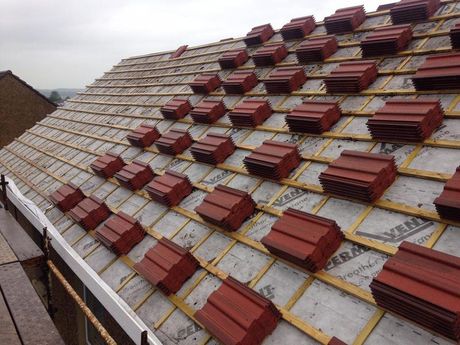
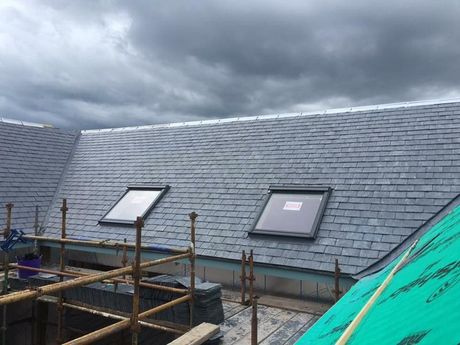
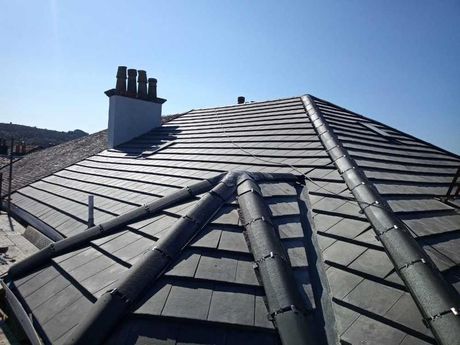
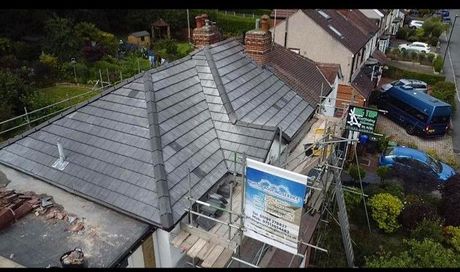
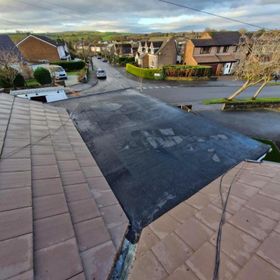
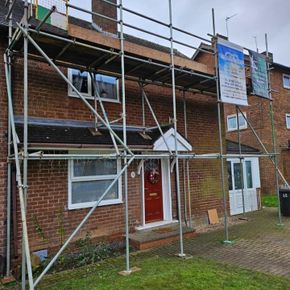
Should ridge tiles be pointed?
Hightop Roofers London have a large amount of experience repairing and installing ridge tiles. Ridge tiles are customised to sit on the apex of a roof. Ridge tiles come in a variety of colours and can be the identical or contrasting colour to the shingles or tiles have have been fitted. Common ridge tiles our roofers in London fit include half round and angular. Angular ridge tiles are traditionally installed on roofs that have slate tiles.
The final fixtures to be installed on a roof are usually the ridge tiles. The majority of ridge tiles are embedded and attached with a mortar mix. However our Roofing London team are also able to lay nail ridge tails or "simple snap". Before having your ridge tiles fitted it is worth discussing with your local professional roofers whether the tiles will incorporate a ventilation system. These come in a variety of styles and are usually laid every fourth/fifth tiles.
One important point Hightop Roofers London remind building owners is to ensure the ridge tiles are installed with uniform gaps. This should be approximately 10mm which allows for a tidy pointing finish between the joints. For those buildings with hip roofs the ridge tiles may need to be adjusted to account for the ridge tile meetings.
It is always best to employ the service of professionals for any roofing work. The main reason being health and safety but also to ensure the project is completed correctly. When fitting ridge tiles they should overlap the tiles or shingles beneath by at least 75mm and provide a complete seal on the roof apex. If you are using a mortar mix to attach the tiles, a compact layer of mortar should be applied between the gap to create a secure bond. This is otherwise known as pointing.
Hightop Roofing London have outlined three top tips for fitting ridge tiles:
- Prior to adding a layer of mortar, the top of the roof should be lightly dampened. This stage is important on really hot days as it minimises the risk of the mortar mix drying too quickly.
- It is also useful to moisten the inner area and edges of the ridge tiles to improve the seal created by the mortar.
- When you attached the ridge tiles firmly push them down on the layer of mortar. A trowel should be used to remove any surplus mortar around the edges and to allow for a tidy finish. Be careful to that the tiles or shingles below remain free from mortar.
If you are a property owner in London area and require expert advice
contact
Hightop RoofingLondon today. We provide free competitive quotes.
Do Hightop Roofing London charge a callout fee?
Hightop Roofing London is proud to offer free roof inspections and cost estimates, when we complete work. Our experienced roofing professionals in London are proud to offer a valuable service to property owners in London
Are Hightop Roofing London contractors approved?
Hightop Roofers London partners with Hightop Roofing Services, and our contractors have received accreditation from the Confederation of Roofing Contractors.
What are your operating hours?
Hightop Roofers London is available from 8 am to 7 pm, seven days a week, from Monday to Sunday, and we may adjust our hours in response to weather conditions. Additionally, we provide an "after-hours service" for your convenience. Don't hesitate to contact our roofers in London today for professional roofing advice and to receive a free, competitive quote.
Do your quotes include materials (e.g. roof slate, lead flashing etc)?
Hightop Roofers London quotes include materials such as roof slates and lead flashing as required. However, we can also provide quotes solely for labor when the customer supplies the materials.
Do Hightop Roofers London carry out commercial roofing projects?
Hightop Roofers London stands as a distinguished service provider with expertise in commercial roof repair and replacement, adept in addressing both flat and pitched roof systems. Our dedicated team of Hightop Roofers in London is unwavering in delivering exceptional services. We extend complimentary roof inspections to evaluate your unique requirements and provide competitive price estimates.
For those seeking professional guidance and a no-obligation competitive quote, we encourage you to reach out to Hightop Roofers London today. Our team is wholeheartedly committed to aiding you with all your roofing needs.
Do Hightop Roofers London carry out work on flat roofs?
Our skilled roofers in London specialise in the repair and replacement of a variety of flat roof materials, including asphalt, metal, rubber (EPDM), fiberglass, and more. For more details about our flat roof services, visit our dedicated
service
page - flat roofs in London. Feel free to contact Hightop Roofers London today for additional information and to request your complimentary quote.
Which areas do Hightop Roofers London cover?
Hightop Roofers Cambridge serves the entirety of London, spanning across North, South, East, and West London. In addition, we have established
partnerships
with national roofing service providers, allowing us to extend our coverage to encompass the entire United Kingdom.
Do Hightop Roofers London install skylights?
Hightop Roofers London is dedicated to providing a diverse array of roofing services, including the installation of skylights and roof construction. Our proficient team excels in customising both pitched and flat roofs to suit your desired fixtures. Contact our roofers in London for a complimentary and competitive quote with no obligations.

